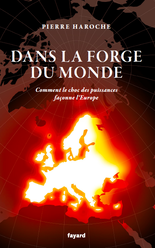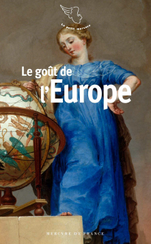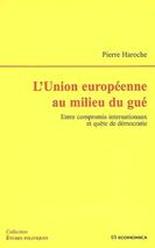BOOKS
|
Dans la forge du monde. Comment le choc des puissances façonne l'Europe, Paris, Fayard, 2024.
Europeans were the first to circumnavigate the globe, in 1522. They gave globalisation its impetus through travel, trade and colonisation, unifying the world as their vast empire. They were not a civilisation, they were Civilisation. Today, the pendulum swings back: history is other people. The rivalry between the United States and China is relegating the Old Continent to the background as it faces war with Russia. This is the phenomenon that Pierre Haroche is highlighting: the increasingly crucial role of the new global power competition in Europe's destiny. As a result of the latest crises, including the Ukraine war, Europeans are being forced to innovate and rethink themselves in order to overcome their weaknesses. A new Europe is emerging from the "forge of the world". The aim of this book is to explore this unexpected loop, this age-old waltz between two titanic entities - Europe and the world. For we are at a crossroads. |
|
Le goût de l'Europe, Paris, Mercure de France, 2022.
Writers, before politicians and civil servants, have made Europe by invoking it. They made it through their vision, their sensitivity, their taste. Europe is an entity that cannot be reduced to the sum of its parts, but encompasses them. From ancient myths to contemporary issues, a journey through an uncertain continent in the company of Hesiod, Ovid, Victor Hugo, Fyodor Dostoevsky, Thomas Mann, Stefan Zweig, Henry James, Albert Cohen, Aurélien Bellanger, Orhan Pamuk, Laurent Gaudé and many others. |
|
L’Union européenne au milieu du gué. Entre compromis internationaux et quête de démocratie, Paris, Economica, 2009.
Based on interviews with national officials negotiating in the Council of the European Union, this book offers an analytical framework of the European Union political regime. Specifically, it distinguishes two types of decision-making: closed negotiation on the one hand, in which actors seek compromise between opposing positions, and open competition on the other hand, in which actors seek majority support in Council and Parliament to prevail. This framework also allows us to understand why these types of decision-making create different types of relations between European institutions and citizens. A critical review of this book has been published in the journal Politique européenne. |



